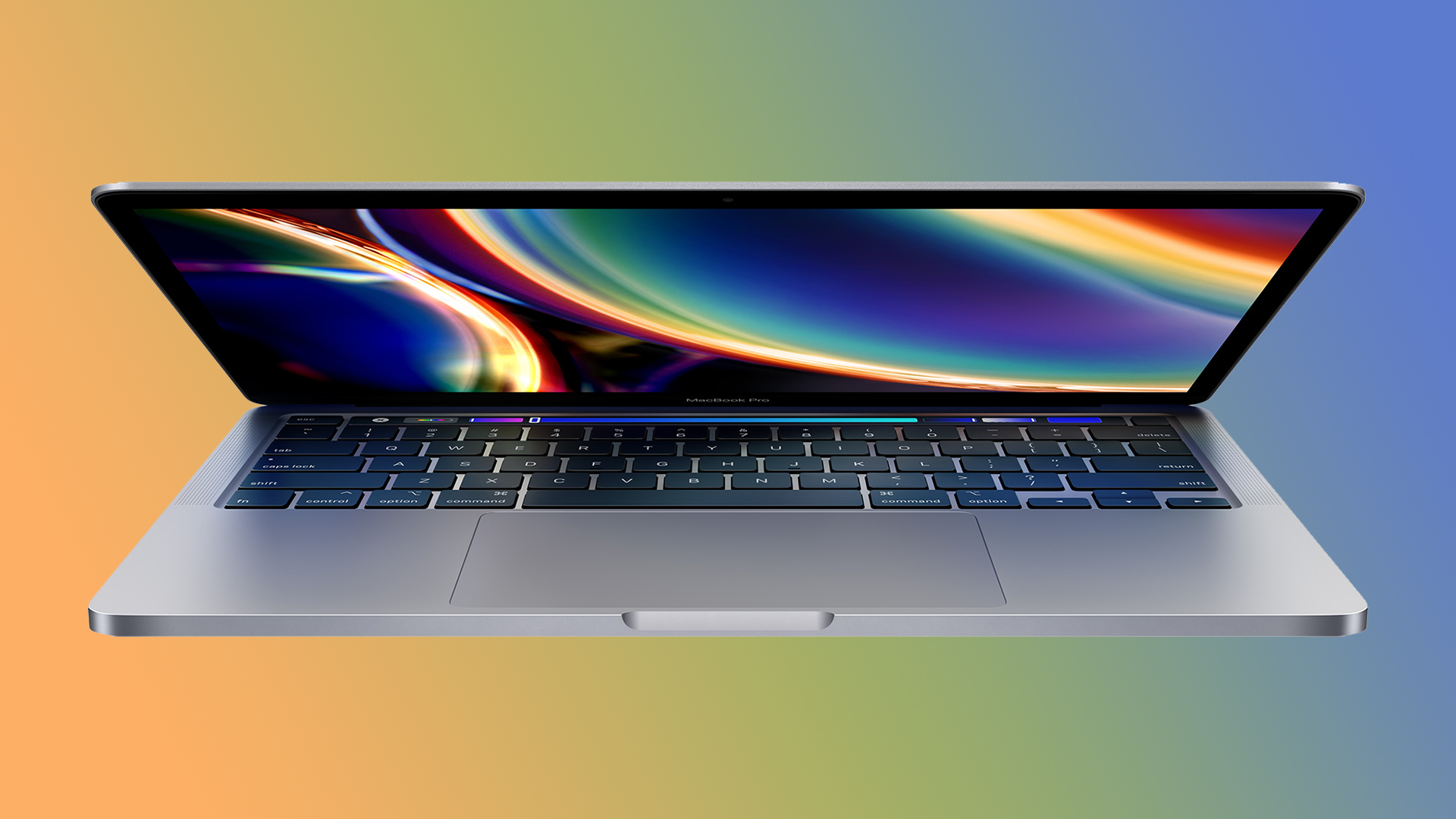New Apple MacBook Pro 13-inch launched with fixed keyboard and double the storage
The new MacBook Pro also brings a faster new-gen Intel processor and more RAM to certain models


Apple has unveiled a new 13-inch MacBook Pro, which offers a new more reliable keyboard and double the storage on all models, and includes more RAM and 10th-gen Intel processors for higher-tier options.
• Browse the new 13-inch MacBook Pro options at Apple UK
• Browse the new 13-inch MacBook Pro options at Apple US
After the introduction of the 16-inch MacBook Pro last year, a lot of people had expected a new 14-inch MacBook Pro to arrive, but if that's coming at all, it looks like we'll have to wait a little longer for it.
This new refresh of the 13-inch MacBook Pro is quite a small for some models, but significantly bigger for others. The changes that are consistent across all models are the use of the new Apple Magic Keyboard – which was just introduced to the 2020 MacBook Air – and that all models have double the storage of the previous models.
The Magic Keyboard is a welcome upgrade, because the keys used on the previous keyboard were more prone to breaking than is really acceptable. The new keyboard also has a little more travel and softness to the keys, so a lot of people will prefer its feel, too.
Exactly which models have had which changes is a little confusing, so we'll break it down:
There are four standard models of the MacBook Pro you can get, starting from £1,299/$1,299.
Get all the latest news, reviews, deals and buying guides on gorgeous tech, home and active products from the T3 experts
The basic model for that price comes with a 1.4GHz 8th-gen quad-core Intel processor, which is the same as the previous model. That means it also has the same Intel Iris Plus 645 graphics. It comes with 8GB of RAM and two Thunderbolt 3 ports as its only data connections – again just like before. The only change here is that it comes with 256GB of extremely fast flash storage – up from 128GB in the previous version.
Next we have a model that costs £1,499/$1499. The only difference between this and the model above is that it comes with 512GB of storage – otherwise it's the same inside and out.
Then we have the £1,799/$1,799 model, which has been more drastically overhauled. It comes with a 2GHz quad-core 10th-gen Intel processor with Iris Plus graphics that are around 80% faster than the previous version, according to Apple. It also comes with 16GB of RAM as standard and 512GB of storage, both of which are double what its predecessor offered. The RAM itself also has higher bandwidth than the other models here. And it comes with four Thunderbolt 3 ports, instead of the two the other models give you.
Finally, the most expensive model costs £1,999/$1,999, and the only difference from the £1,799/$1,799 model is that this comes with 1TB of storage.
Now, you might wondering why it costs £200/$200 to upgrade your storage no matter whether you're adding an extra 256GB or an extra 512GB… and you'd have a point. We'll ask when we get the chance.
The top two models offer more advanced custom configuration options: you can choose an even faster processor, 32GB of RAM or up to 4TB of storage.
All four models still share exactly the same screen – 2560x1600 resolution, with a wide P3 colour gamut and 500 nits of brightness. The display on these laptops is really nice, but we were hoping to see improvement in this area too, perhaps with HDR support. If you need more space or HDR support, you'll have to look at picking one of the best monitors for MacBook Pro.
All four models also include the Touch Bar second screen, which shows customised shortcuts depending on the app you're in. They also have fingerprint identification and Apple T2 chip for on-board security.
All in all, then, the new MacBook Pros are a small upgrade for the two lower-tier models, though the keyboard and low storage levels were our single biggest issues with the old machines at the time, so the fix for both is definitely welcome.
At the higher-tier, this looks like a pretty sharp set of upgrades, improving specs across the board.
• Buy the new MacBook Pro 13-inch at Apple UK
• Buy the new MacBook Pro 13-inch at Apple US

Matt is T3's former AV and Smart Home Editor (UK), master of all things audiovisual, overseeing our TV, speakers and headphones coverage. He also covered smart home products and large appliances, as well as our toys and games articles. He's can explain both what Dolby Vision IQ is and why the Lego you're building doesn't fit together the way the instructions say, so is truly invaluable. Matt has worked for tech publications for over 10 years, in print and online, including running T3's print magazine and launching its most recent redesign. He's also contributed to a huge number of tech and gaming titles over the years. Say hello if you see him roaming the halls at CES, IFA or Toy Fair. Matt now works for our sister title TechRadar.